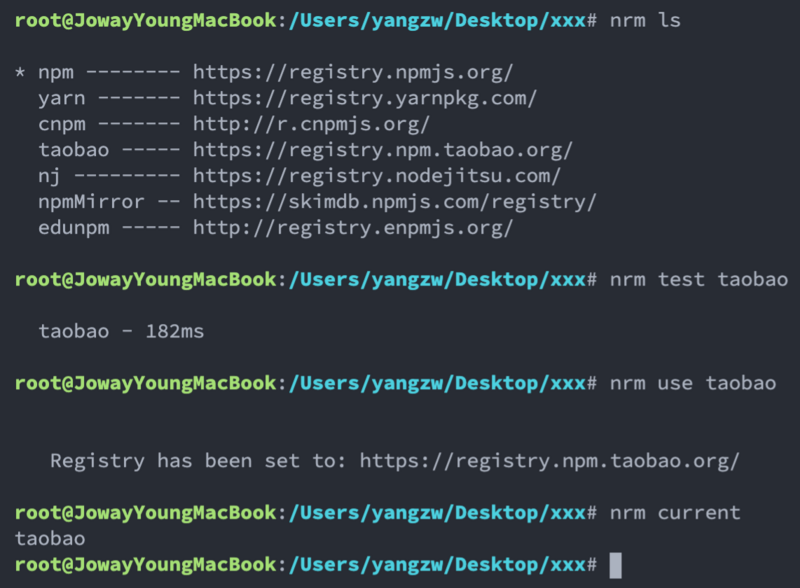聊聊debezium的ElapsedTimeStrategy

ElapsedTimeStrategy
debezium-v1.1.1.Final/debezium-core/src/main/java/io/debezium/util/ElapsedTimeStrategy.java
@FunctionalInterfacepublic interface ElapsedTimeStrategy {
/**
* Determine if the time period has elapsed since this method was last called.
*
* @return {@code true} if this invocation caused the thread to sleep, or {@code false} if this method did not sleep
*/
boolean hasElapsed();
}
- ElapsedTimeStrategy定义了hasElapsed方法
none
debezium-v1.1.1.Final/debezium-core/src/main/java/io/debezium/util/ElapsedTimeStrategy.java
public static ElapsedTimeStrategy none() { return () -> true;
}
- none方法针对hasElapsed始终返回true
constant
debezium-v1.1.1.Final/debezium-core/src/main/java/io/debezium/util/ElapsedTimeStrategy.java
public static ElapsedTimeStrategy constant(Clock clock, long delayInMilliseconds) { if (delayInMilliseconds <= 0) {
throw new IllegalArgumentException("Initial delay must be positive");
}
return new ElapsedTimeStrategy() {
private long nextTimestamp = 0L;
@Override
public boolean hasElapsed() {
if (nextTimestamp == 0L) {
// Initialize ...
nextTimestamp = clock.currentTimeInMillis() + delayInMilliseconds;
return true;
}
long current = clock.currentTimeInMillis();
if (current >= nextTimestamp) {
do {
long multiple = 1 + (current - nextTimestamp) / delayInMilliseconds;
nextTimestamp += multiple * delayInMilliseconds;
} while (current > nextTimestamp);
return true;
}
return false;
}
};
}
- constant接收clock及delayInMilliseconds参数,其hasElapsed方法通过delayInMilliseconds计算nextTimestamp,在current小于nextTimestamp时返回false,否则更新nextTimestamp并返回true
step
debezium-v1.1.1.Final/debezium-core/src/main/java/io/debezium/util/ElapsedTimeStrategy.java
public static ElapsedTimeStrategy step(Clock clock, long preStepDelayInMilliseconds,
BooleanSupplier stepFunction,
long postStepDelayInMilliseconds) {
if (preStepDelayInMilliseconds <= 0) {
throw new IllegalArgumentException("Pre-step delay must be positive");
}
if (postStepDelayInMilliseconds <= 0) {
throw new IllegalArgumentException("Post-step delay must be positive");
}
return new ElapsedTimeStrategy() {
private long nextTimestamp = 0L;
private boolean elapsed = false;
private long delta = 0L;
@Override
public boolean hasElapsed() {
if (nextTimestamp == 0L) {
// Initialize ...
elapsed = stepFunction.getAsBoolean();
delta = elapsed ? postStepDelayInMilliseconds : preStepDelayInMilliseconds;
nextTimestamp = clock.currentTimeInMillis() + delta;
return true;
}
if (!elapsed) {
elapsed = stepFunction.getAsBoolean();
if (elapsed) {
delta = postStepDelayInMilliseconds;
}
}
long current = clock.currentTimeInMillis();
if (current >= nextTimestamp) {
do {
assert delta > 0;
long multiple = 1 + (current - nextTimestamp) / delta;
nextTimestamp += multiple * delta;
} while (nextTimestamp <= current);
return true;
}
return false;
}
};
}
- step接收stepFunction方法,其hasElapsed方法的初始nextTimestamp为
clock.currentTimeInMillis() + delta,在elapsed为false时通过stepFunction设置elapsed,如果为true则更新delta为postStepDelayInMilliseconds,之后在current小于nextTimestamp返回false,否则更新nextTimestamp,返回true
linear
debezium-v1.1.1.Final/debezium-core/src/main/java/io/debezium/util/ElapsedTimeStrategy.java
public static ElapsedTimeStrategy linear(Clock clock, long delayInMilliseconds) { if (delayInMilliseconds <= 0) {
throw new IllegalArgumentException("Initial delay must be positive");
}
return new ElapsedTimeStrategy() {
private long nextTimestamp = 0L;
private long counter = 1L;
@Override
public boolean hasElapsed() {
if (nextTimestamp == 0L) {
// Initialize ...
nextTimestamp = clock.currentTimeInMillis() + delayInMilliseconds;
counter = 1L;
return true;
}
long current = clock.currentTimeInMillis();
if (current >= nextTimestamp) {
do {
if (counter < Long.MAX_VALUE) {
++counter;
}
nextTimestamp += (delayInMilliseconds * counter);
} while (nextTimestamp <= current);
return true;
}
return false;
}
};
}
- linear通过
delayInMilliseconds * counter来递增nextTimestamp
exponential
debezium-v1.1.1.Final/debezium-core/src/main/java/io/debezium/util/ElapsedTimeStrategy.java
public static ElapsedTimeStrategy exponential(Clock clock, long initialDelayInMilliseconds,
long maxDelayInMilliseconds,
double multiplier) {
if (multiplier <= 1.0) {
throw new IllegalArgumentException("Multiplier must be greater than 1");
}
if (initialDelayInMilliseconds <= 0) {
throw new IllegalArgumentException("Initial delay must be positive");
}
if (initialDelayInMilliseconds >= maxDelayInMilliseconds) {
throw new IllegalArgumentException("Maximum delay must be greater than initial delay");
}
return new ElapsedTimeStrategy() {
private long nextTimestamp = 0L;
private long previousDelay = 0L;
@Override
public boolean hasElapsed() {
if (nextTimestamp == 0L) {
// Initialize ...
nextTimestamp = clock.currentTimeInMillis() + initialDelayInMilliseconds;
previousDelay = initialDelayInMilliseconds;
return true;
}
long current = clock.currentTimeInMillis();
if (current >= nextTimestamp) {
do {
// Compute how long to delay ...
long nextDelay = (long) (previousDelay * multiplier);
if (nextDelay >= maxDelayInMilliseconds) {
previousDelay = maxDelayInMilliseconds;
// If we"re not there yet, then we know the increment is linear from here ...
if (nextTimestamp < current) {
long multiple = 1 + (current - nextTimestamp) / maxDelayInMilliseconds;
nextTimestamp += multiple * maxDelayInMilliseconds;
}
}
else {
previousDelay = nextDelay;
}
nextTimestamp += previousDelay;
} while (nextTimestamp <= current);
return true;
}
return false;
}
};
}
- exponential通过
multiple * maxDelayInMilliseconds来递增nextTimestamp
小结
ElapsedTimeStrategy定义了hasElapsed方法,它提供了none、constant、step、linear、exponential这几种实现
doc
- ElapsedTimeStrategy
以上是 聊聊debezium的ElapsedTimeStrategy 的全部内容, 来源链接: utcz.com/z/516687.html







